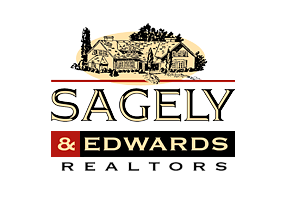
Visit Mobile Site

Find out how much your home is worth!
It's free, simple & easy.
Stay up to date with the latest real estate news and special promotions!
Subscribe to our newsletter to get up-to-date info on the latest housing market conditions for this area.

It is becoming more and more common amongst potential home buyers to pursue the most efficient route possible to a brand new home. Instead of going through the process of scouting out a neighborhood or collecting flyers, intelligent buyers are instead making a lender their first stop. Instead of spending hours on the wrong home, getting the sale price first is becoming a much more popular and simpler way to pursue a home.
Indeed, getting a financial frame of reference for your home search first can greatly cut down on the amount of time you spend looking through ads and walking through properties with a real estate agent. These are often the most time consuming parts of a home search and by simplifying them at least somewhat, you can spend more time on homes better suited for your financial situation.
However, there has been some misconception over the difference between getting pre-qualified for a particular amount and getting pre-approved for a particular purchase price. These two terms mean very different things and as a seller is looking over your offer, each term conveys something different and has a very different impact on that offer.
What Is Pre-Qualification?
In both processes, a lender will take down your financial information and provide you a rough estimate of what you can afford to pay for a home. A pre-qualification exercise can be seen as more of a rough draft of what you might be able to afford. While a lender will ask for your financial information, the lender will not typically go through the process of verifying your information or doing more research into your financial viability.
If you tout that you have been pre-qualified for a particular amount, it is certainly better than not having any idea of what you can afford. However, it says nothing about your actual ability to get a loan for that amount and instead says that you could probably get a loan for that amount. If a seller sees that you are pre-qualified for an amount approximating the sale price of the property, that does communicate some amount of credibility but not the credibility pre-approval suggests.
What Is Pre-Approval?
In contrast to pre-qualification, pre-approval is given to a potential buyer by a lender that has done significant homework into your financial history and has agreed to loan you the amount you have been pre-approved for. This carries much more weight than pre-qualification and communicates very clearly that your finances are in order and you are in prime position to buy a property that falls within range of the pre-approved figure.
When a seller sees that you have been pre-approved for the amount of the sale price, that seller takes your offer as a much more credible prospect than a contract that does not have pre-approval attached. Not only can pre-approval save you time during the search for a home, it can save you time when you eventually find that property. Pre-approval saves the time typically taken to secure financing after an offer is made and can often deliver a home to a potential buyer quicker.
As you ponder beginning a search for a first or new home, it is a great idea to first see a lender that can examine your financial situation and give you an idea of what kind of home you can afford. When you take that meeting, ask about what it might take to get pre-approved for the amount the lender suggests. Pre-approval not only shortens your search but conveys a sense of credibility in your offer to a home seller that you cannot achieve through pre-qualification or through pursuing the home first and financing second.